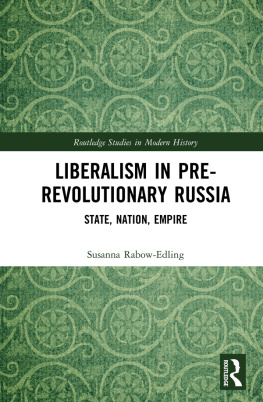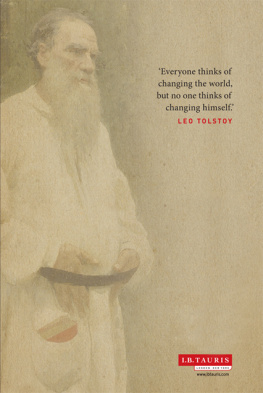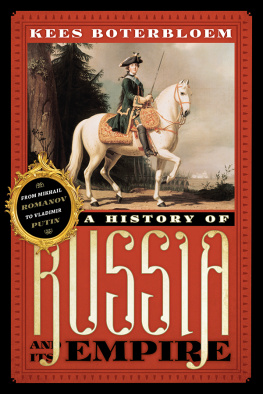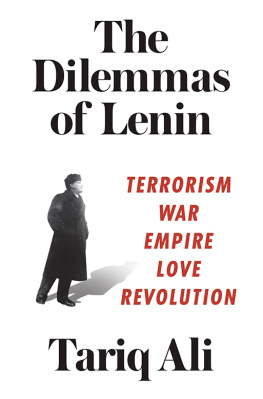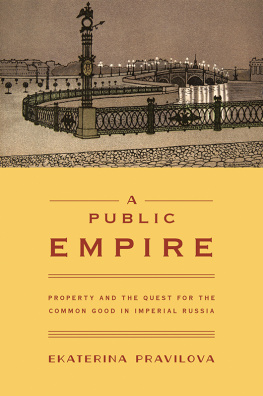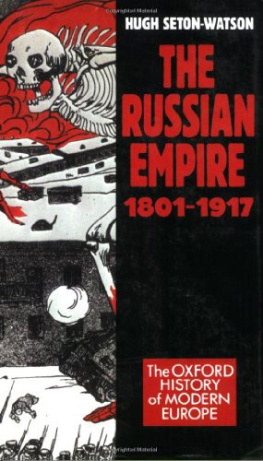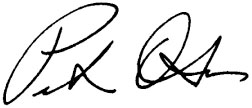Copyright 2017 by Mikhail Zygar
Hachette Book Group supports the right to free expression and the value of copyright. The purpose of copyright is to encourage writers and artists to produce the creative works that enrich our culture.
The scanning, uploading, and distribution of this book without permission is a theft of the authors intellectual property. If you would like permission to use material from the book (other than for review purposes), please contact permissions@hbgusa.com. Thank you for your support of the authors rights.
PublicAffairs
Hachette Book Group
1290 Avenue of the Americas, New York, NY 10104
www.publicaffairsbooks.com
@Public_Affairs
First Edition: November 2017
Published by PublicAffairs, an imprint of Perseus Books, LLC, a subsidiary of Hachette Book Group, Inc.
The Hachette Speakers Bureau provides a wide range of authors for speaking events. To find out more, go to www.hachettespeakersbureau.com or call (866) 376-6591.
The publisher is not responsible for websites (or their content) that are not owned by the publisher.
Editor of the Russian version: Karen Shainian
Translator: Thomas Hodson
Illustrations: Yuri Buga
Library of Congress Cataloging-in-Publication Data has been applied for.
ISBNs: 978-1-61039-831-2 (hardcover); 978-1-61039-832-9 (ebook)
E3-20170919-JV-NF
PublicAffairs is a publishing house founded in 1997. It is a tribute to the standards, values, and flair of three persons who have served as mentors to countless reporters, writers, editors, and book people of all kinds, including me.
I. F. S TONE , proprietor of I. F. Stones Weekly, combined a commitment to the First Amendment with entrepreneurial zeal and reporting skill and became one of the great independent journalists in American history. At the age of eighty, Izzy published The Trial of Socrates, which was a national bestseller. He wrote the book after he taught himself ancient Greek
R OBERT L. B ERNSTEIN , the chief executive of Random House for more than a quarter century, guided one of the nationss premier publishing houses. Bob was personally responsible for many books of political dissent and argument that challenged tyranny around the globe. He is also the founder and longtime chair of Human Rights Watch, one of the most respected human rights organizations in the world.
For fifty years, the banner of Public Affairs Press was carried by its owner Morris B. Schnapper, who published Gandhi, Nasser, Toynbee, Truman, and about 1,500 other authors. In 1983, Schnapper was described by The Washington Post as a redoubtable gadfly. His legacy will endure in the books to come.
Peter Osnos, Founder
All the Kremlins Men: Inside the Court of Vladimir Putin
I want to voice support to my friend Kirill Serebrennikov, an outstanding Russian filmmaker and theater director, who was arrested on August 22, 2017 on made-up charges. I hope he wont share the fate of any character of this book.
I am not a historian, but a journalist. As such, this book was written according to the rules of journalism: as if the characters were alive and I had been able to interview themrather like my previous book, All the Kremlins Men.
Fortunately, most of my protagonists told their own stories, having left behind detailed diaries, letters, memoirs, and public statements. In order to recreate the picture of early twentieth-century Russia, I tried to read as many of the available sources as I could. There is no doubt that although many people lied (especially in their memoirs), most did so sincerely, convinced that they were telling the truth.
My primary objective was to view the world through contemporary eyes. I did not have a ready-made answer to the question of why the Russian revolution happened. I did not have a theory that I wanted to prove to the reader; that would have required some fact-filtering. On the contrary, it took me a great deal of work to clear the picture of prejudices and stereotypes, and to peel away the layers of sediment deposited by dozens of professional historians. Many had their own preconceived concepts and off-the-shelf answers. Many looked upon Russias revolution as a single, irreversible process.
My protagonists knewor rather, knownothing about this. They live their own lives, little suspecting that many years later they will be considered grains of sand in the historical process.
The book starts at the turn of the twentieth century. It is a fascinating time. Many of Russias young metropolitan intellectualsthe noughties generationare apolitical and totally unlike the older generation of dissidents. They consider politics to be yesterdays game, something old-hat and unfashionable. But politics enters their lives uninvited as the tsarist regime stifles creative freedom, banning and blocking arbitrarily. The result is a gradual swelling of mass protestthe first in Russian history, which is only bolstered by the regimes cack-handed response. During this brief window of opportunity, Russia has a civil society that is active, demanding, and self-aware. Many of the most vibrant figures from this time are forgotten or willfully misunderstood in Russia today.
Russian intellectuals are outraged by the unprovoked shooting of a workers demonstration on 9 January 1905, Bloody Sunday, after which the protest mood becomes overwhelming. The creative class demands general elections, a parliament, freedom of speech, and equality before the law. Whats more, it is sure that it will have its way. But the euphoria lasts barely a year. The authorities seem to reach out at first, but soon backtrack on their promises. Yesterdays optimism gives way to bitter disappointment, and society braces itself for a crackdown. At that point, for many, the time has come to topple the regime.
Curiously, this periodfrom 1905 to 1914is regarded by some contemporaries as the most prosperous time in the history of the Russian Empire, a corpulent decade, while others see it as a gloomy age of repression, electoral rigging, and nod-and-wink justice. Power and influence fall into the hands of religious radicals and witch-hunters, who demand that cultural figures be biblically chastised with scorpions for daring to insult the authorities or the feelings of Orthodox believers. Many intellectuals leave Russia for Europe, where they engage in endless debates about the fate of their homeland. Bizarrely, Europe is also home to many imperial family members and courtiers, who shock the locals with their lavish lifestyle. The intellectual and aristocratic Russian elites are hardly in Russia at this time.
This existencecarefree for some, forlorn for otherscomes to an abrupt end with the outbreak of World War I, which no one expects. It is not the war itself that plunges Russia into the abyss, but the fact that the Russian state, with its veritable army of bureaucrats and officials, is unable to cope. The early frontline successes are derailed by corruption and incompetence.
Post factum, the course of history seems logical. Armed with hindsight, we are able to trace the hatching of plans and the exposing of plots; good and evil are clearly labeled. But on stepping into the shoes of historys participants, our preconceived concepts turn to dust. Nothing is preordained. Everyone is fallible and error-prone. No one can foresee the future even a couple of days ahead. No one can map out their own lifelet alone that of a dying empirebecause the circumstances are in such flux. Even Lenin is convinced of his imminent failure just hours before his ultimate triumph.


